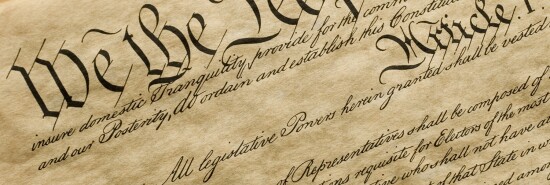
Judge in Big Tech case rules that the First Amendment still means something
Hudson Crozier
Video Embed
A significant and positive development in the battle over free speech online came Tuesday in the form of a ruling in a lawsuit against the Biden administration. Trump-appointed Judge Terry Doughty has temporarily blocked several agencies and bureaucrats from communicating with social media platforms for the purpose of targeting legal speech that the government deems harmful or “misinformation.”
In the discovery process, Republican attorneys general from Louisiana and Missouri exposed emails and text messages between the government and employees at Facebook, Instagram, Twitter, and YouTube showing this collaboration on a scale not previously known. The suppressed or censored content ranged from user comments about COVID-19 vaccines to the 2020 election to the president’s son.
MARRIAGE IS THE TRUE CIVIL RIGHTS ISSUE OF OUR TIME
“It is quite telling that each example or category of suppressed speech was conservative in nature,” Doughty noted. “This targeted suppression of conservative ideas is a perfect example of viewpoint discrimination of political speech.”
The government appears to be preparing to make the defense that it might not have overtly forced the companies into censoring speech. One could argue, then, that the actions taken were technically private and not state-sanctioned.
“Our consistent view remains that social media platforms have a critical responsibility to take account of the effects their platforms are having on the American people, but make independent choices about the information they present,” the Justice Department told the Washington Post on Tuesday.
The government’s relationship with the private sector, however, is inherently coercive, and one cannot reasonably take its requests at face value with the retaliatory power at its disposal. Some of the conversations revealed through the lawsuit make this clear.
After President Joe Biden publicly accused Facebook of “killing people” for not cracking down enough on vaccine “misinformation,” an employee of its parent company, Meta, responded in almost a panicked way.
“Reaching out after what has transpired over the past few days following the publication of the misinformation advisory, and culminating today in the President’s remarks about us,” he wrote to the surgeon general that day. “I know our teams met today to better understand the scope of what the White House expects from us on misinformation going forward.” He later texted the official, “It’s not great to be accused of killing people,” letting him know that he was “keen to find a way to deescalate.” This is not the behavior of someone who doesn’t feel pressure to obey.
If the First Amendment means anything, courts will find this “vast censorship enterprise,” as the plaintiffs call it, to be unacceptable overreach. Furthermore, this ruling and any others like it will force bureaucrats to focus on helping the platforms address actual crimes, such as rampant child sex abuse material, instead of policing what everyone thinks about domestic politics. A shake-up is needed to make the government perform the functions it should for the sake of the public it serves.
CLICK HERE TO READ MORE FROM THE WASHINGTON EXAMINER
Hudson Crozier is a summer 2023 Washington Examiner fellow.
